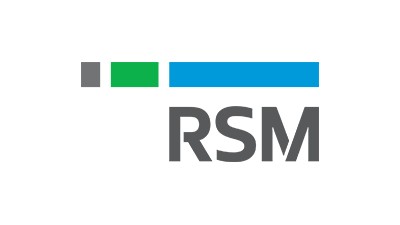A Looming Trade War Could Have Implications For Investors, Developers

Over the last few months, the Trump administration has imposed tariffs on several foreign goods. The tariffs include steel and aluminum taxes imposed on Canada, Mexico and the EU and a proposed $200B levy on Chinese goods, with several additional tariffs still being finalized.
Commercial real estate is expected to take a substantial hit from these tariffs. Increased construction costs, coupled with the tariffs’ impact on foreign investment, could turn commercial real estate on its head. As countries like China respond to U.S. levies with retaliatory tariffs, uncertainty around a looming trade war has prompted several investors and developers to back out of deals or prevented them from moving forward. Commercial real estate professionals across all asset classes are preparing to see an economic impact.
The Cost Of Tariffs
Nearly 10 years after the recession, the commercial real estate industry is seeing a surge in construction across the U.S. Since 2012, homebuilders have doubled housing starts, and developers have added 138M SF of office space, RSM U.S. reported.
Tariffs pose a threat to this progress. The 25% tariff on foreign steel, a material that accounts for an average of 14% of a building cost, is expected to limit development in office, retail, industrial and multifamily construction.
The construction industry has also felt the impact of a 21% tariff on Canadian lumber, which was enacted in 2017. Lumber accounts for 9% of total construction costs, but these tariffs, coupled with an overall reduction in supply, has led to a 36% increase in lumber costs over the last year.
"When you look at the cost of steel and lumber, they have been up from a commodity standpoint from 15% to 20% year over year, which translates to a 9% or 10% increase in the cost of a project, depending on project size,” RSM Real Estate partner Troy Merkel said.
The labor market has also had a significant impact on pricing. Contractors and subcontractors are charging more because of a lack of talent. They have a number of jobs to bid on, and they can continue to charge more for each job, Merkel said.

A Broad-Reaching Impact
Whether or not the tariffs will affect a specific development or region is dependent on a number of factors. For instance, location plays a large role in the level of impact. These tariffs could pause construction healthily in overdeveloped areas, but worsen supply shortages in other areas.
“If you look at some of the coastal cities such as New York, they’ve had some issues with the oversupply of multifamily space,” Merkel said. “With rising costs of tariffs and the labor shortage, we're projecting in 2019 there’s gonna be some slowdown of new supply coming to the market, which will help bolster rent growth in those areas. So that is the type of market where existing owners will benefit from a potential slowdown in development. On the other hand, underdeveloped areas, especially in more rural areas, could be hit especially hard by the tariffs."
To Invest Or Not To Invest
Tariffs have driven many investors to think twice about the projects they fund. As tension arises over the impact of these tariffs, a number of projects are not getting the funding they need to deliver.
“Many businesses are delaying capital investment, and development margins are slim, so project success has a lot to do with appropriately timing the market,” RSM Senior Manager Laura Dietzel said. “You don’t want to be caught in a situation where you're ready to deliver your asset and you find yourself in another recession. It’s that overall uncertainty in the short term that is influencing the true economic impact over the long term.”

Other investors are looking to diversify their portfolios, but want to make sure they will not be hit with costs before they commit.
“We are having a lot of clients that are looking to diversify into ground-up development and rehab for older properties, and moving into that space where they don’t have a track record there,” Merkel said. “We’re advising them to look at contracts and make sure there are clearly defined clauses that account for commodity price and supplies, material price increases that could be tariff-driven. Mitigating legalities and the impact of the tariffs is where we’re advising our clients.”
Another concern, especially for large developments in major cities like Chicago and New York, is the divestment of Chinese capital. Foreign direct investment dropped by 92% year over year in the first half of 2018, Foreign Policy reported. It is part of an effort on behalf of the Chinese government to keep investment from leaving the country.
“This divestment started even before the trade war escalated,” Dietzel said. “Meanwhile, the U.S. has also cracked down on Chinese involvement from a national security standpoint, and I anticipate more scrutiny there as well.”
Investors from Canada, Germany and South Korea have helped offset the exodus of Chinese investment in commercial real estate, Merkel said. If they pull out because of the tariffs, commercial real estate activity could see a slowdown.
As the trade war continues to evolve, policy experts expect there to be further changes and new announcements regarding tariffs over the next few months. By staying informed about changes in the market and keeping an eye on breaking news on the trade war, investors and developers are preparing for impact.
This feature was produced in collaboration between Bisnow Branded Content and RSM US. Bisnow news staff was not involved in the production of this content.

